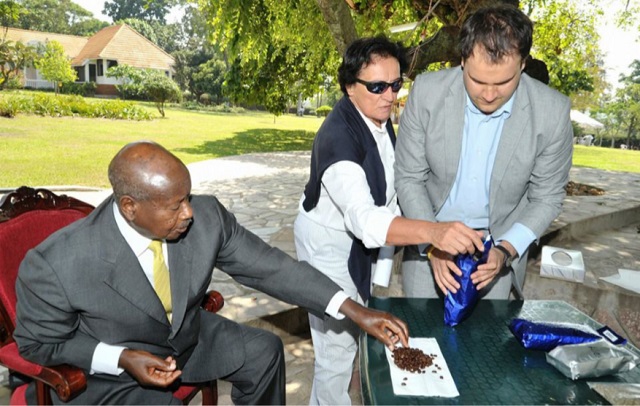
How the debate on Lubowa hospital exposes the self-indulgence of Ugandan elites and their poverty of ideas
THE LAST WORD | ANDREW M. MWENDA | Two weeks ago Uganda government approved $380m (or Shs1.4 trillion) to build an “international specialised hospital” in Lubowa. On the face of it, this is a great idea. It is prestigious for a poor country like Uganda to own a state-of-the-art hospital that can handle highly complex medical problems. Besides, if our country is to attract high-end tourism, it needs such a highly specialised hospital so that rich tourists can visit our country confident that in case of a medical emergency they can be handled.
Yet I think the hospital at Lubowa has very little to do with high-end tourism. Rather it shows how political power in Uganda, most especially democratic power, is in the tight grip of a very small, parochial and self-indulgent elite – inside government, in the fickle opposition, and in the wider Ugandan chattering elite class! The Lubowa hospital is being built because Ugandan elites want such a government owned facility to save their lives. In their self-indulgence, they ignore where national health priorities should be.
The permanent secretary in the ministry of Finance who is also the secretary to the Treasury, Keith Muhakanizi, explained it well. He said 8,200 persons in Uganda applied for medical visas to India in 2016 of whom, 5,000 were sponsored by government of Uganda at a cost of $123m ($15,000 per person). In building the hospital, government is cutting down on this expense, which makes sense – until.
Muhakanizi also said the total cost of medical treatment abroad (government and privately sponsored persons) in 2014 was $186 million of which only $73 million went to medical treatment while $133 million went to transport and upkeep. It makes a lot of sense, therefore, that Uganda builds a hospital to handle highly complicated medical emergencies because it will reduce the foreign exchange cost by 71.5%.
Consistent with the self-indulgence of the Ugandan elites across the intellectual spectrum, their disagreement with the project is over its cost, not its actual purpose i.e. government to subsidise the medical bills of largely a few people with influence to get recommended by the medical board. Our elites want the state to build a highly specialised hospital where they can always go for expensive medical treatment at zero cost. Consequently, they have brought a lot of heat but shade very little light on the project.
For instance, the cost of $250m to construct this hospital – with its 264 beds, 82-room budget hotel, a 500 sitter conference facility, a health training school, housing for staff (85,000 square meters of built up area), the cost of equipping the hospital with some of the most advanced and high tech medical gadgets, beds etc., medicines for one year, training of Ugandan health professional staff etc. is reasonable. Ugandan elites do not want to look at the detailed bill of quantities and they go yapping around.
Secondly there is the cost of interest on the money borrowed to build this hospital at 6.5%, which I find reasonable as well. This is because it is hard to find a concessionary loan for building a highly specialised hospital. Besides, there has to be profit for the contractor and the promoter of this project. Finally there is always the cost of corruption: I do not think is it possible to give out such a lucrative contract in Uganda without wheeler-dealers getting a cut.
A note on this corruption: this is a great moral issue and on that I share everyone’s concerns and outrage. However, I learnt from Samuel Huntington, an American scholar that an intellectual must always separate their values/morals from their analysis – so that they can analyse clearly. While it is good for us to try to ensure that public projects reflect reasonable costs, it is often counterproductive to seek to delay/stop them unless and until you have the ideal price. It doesn’t exist.
Secondly, big infrastructure projects are inherently more political than technical. Without financial rewards to the wheeler-dealers in the system and their ability to create political slush funds for those in power, it would be difficult for any country to implement them. Often it is the corruption involved that makes such projects possible; and why public officials are likely to get incentivised to process them faster. Those who believe in the altruism of public officials should remember how communism failed.
Capitalism, which has created unprecedented prosperity, is based on the selfishness of man (individual greed). Its cardinal principle is that everyone should seek that which is to his/her best monetary advantage. Therefore, it is difficult to reconcile capitalism’s foundational creed with the ethics we demand from public officials. Public servants have power to allocate lucrative rights over scarce resources. It follows that they will always seek to bargain for a share of the rents they help to create. The magnitude of this share may vary from society to society and from one period to another.
Thus, the inflation in the costs of a dam or highway by anything between 10 to 30% may be the necessary price to get public officials incentivised to work hard and get such projects off the ground. Otherwise without a commission they may drag their feet forever. Delaying a project in a vain effort to stop alleged corruption is always more costly in direct financial costs and in opportunity cost than in letting officials take a commission of 10 to 20%. NSSF’s pension towers, which I will write about next time, proves this.
The real issue in the debate over Lubowa is that a government of a poor country like Uganda should not be sponsoring people, rich or poor, for expensive medical attention here or abroad. Our meagre public resources should be spent on trying to achieve the greatest good for the greatest number. This means emphasis on public health programs such as vector control, improved sanitation, immunisation and vaccination, clean water and public hygiene.
If government invests in clinical care, it should focus on those diseases that affect the largest number of the most vulnerable: malaria, cough and cold, urinary tract infections, intestinal worms, gastrointestinal disorders, acute diarrhea, etc. This means government invests more in health centres at community level – with better medical staff, equipment and medicines. This is not to say it should ignore treatment for complicated diseases. Rather, it can provide a long term loan at low cost to a private investor to develop such a facility and everyone who goes there – rich or poor – pays his/her bills.
****
amwenda@independent.co.ug
 The Independent Uganda: You get the Truth we Pay the Price
The Independent Uganda: You get the Truth we Pay the Price




Hmmm, so now it’s “the elites made me do it”…
This is fiction.
Notably absent from the guilty elites is the leadership of the Ugandan medical profession and the Ministry of Health. They were not consulted, and when they heard about the contract (after it was signed) they were not in favour. The Ministry of Health makes a list of priorities every year during the budget process. The Lubowa hospital, or anything resembling it, has never been on that list. A lot of things on that list have gone unfunded, including the equipping of the existing specialist hospitals with basic supplies and equipment.
There has never been , in any forum, a group of individuals, elite or masses, agitating for the creation of a super-duper world class hospital in Uganda at government expense. There has been a loud and persistent agitation for the existing hospitals to be properly equipped with basic supplies, and for health workers to get a living wage.
On capitalism Mr Mwenda’s logic is just plain wrong. Government officers are not capitalists managing their own money to maximize their own returns. They are employees, and diverting a portion of the money they are managing into a personal account is NOT capitalism at work. It is a crime. Successful governments, like successful companies, lean heavily on employees who do such things.
A self-serving leadership is not a national “misguided priority”.
“A self-serving leadership is not a national ” misguided priority.”” That, from now, will become my “mantra”, thank you.
The reason that hospital should be abandoned wherever the project has reached is because it will die a stillborn death. There are many reasons that will kill the project each on its own capable of crippling the project.
1. Every poor and middle-class person hates it…… the poor and middle-class are among the staff (both medical and other services) including security……Winnie does not know that stinking garbage trucks carry bullion-value goods including cocaine…..these will be used to drain that elite establishment slowly but gradually and progressively until everything of value will be at high risk of disappearance.
2. Extortion by service providers and public utilities will be high on agenda ….. the transformer has blown a fuse, the water pump has exploded…..the air ambulance has broken; the rotor hub is bent by lift etc…… and other aviation jargon a layman will not argue against….. they will haemorrhage the hospital even if you guard it with SFC. Moreover opposition big-wigs will avoid it.
3. The hospital has started on a very bad leg of ill-omen….from MPs, ordinary people who have zero chance of being beneficiaries to medics themselves and all and sundry, this hospital is unpopular escept for the likes of Mwenda, subcontractors and other prospective speculative thieves……even the neighbourhood will gain zero benefit from the hospital because catering will be done by a high-end joint from town.
4. The running costs will be prohibitive through over-billing and other opulent unnecessary consultation by the spoilt brats,wives and concubines of the powers-that-be…..then the government, in its always broke status will default to pay accumulated bills, suppliers and the investor will fail to deliver the anticipated services leading to its dilapidation. then will rapidly follow suits and counter-suits and the next thing you know, bedbugs will be reported in the beddings.
5. It is my humble advice that a technical drawing be revised in a tricky way so that it is planned like a hospital but in case it fails, it instantly be converted into a ‘goods’ hotel complete with massage parlour,with exotic ladies and all other trappings that cater for the well-off …Winnie knows what I am saying otherwise, Lubowa and the Airline together is double suicide……..
Mwenda is busy exposing the lack of stand mind
Trying hard to please his behind curtain employers who he sold all his time, mind and soul but trying to appear as no side man standing aloof of battle field between GOVT and local people whose outcry on useless spending, unplanned and aimless seem not to reach their ears blocked with cotton of selfishness, lack of thinking beyond them and hooliganism. He is busy glorifying every sin because something has been put in the mouth
Andrew’s gray Beards kills us women.
1.I thought when Parliament approved funds for the construction of Lubowa Hospital it simply meant that the funds were available.
2. Either way both Government and Roko Finasi signed a good deal coz when a govt agrees to the terms stated in the promissory note then it means payment will only be effected after some woks have been accomplished.
3. Government has burned its fingers before in the Naguru and Shimoni projects where fake investors used pseudo names to disguise as real investors and later colluded with Ugandan investors to sell those projects to them.I dont know why govt has not hired Interpol to track these chaps.
4.They dont come inform of Rocker fella,Warren Buffet and Melinda and Bill gates any more.What happened to rich men and nations donating to charity?
5.@ Rajab medical equipment costs lots of money just recently,Uganda purchased 2 cancer machines didn’t it cost us billions of shillings?Just go online and google the price of medical equipment they don’t come cheap.
6.I have never understood why specialized medical services are always expensive is it because those who are ill are helpless?is it a form of blackmail by the medical experts i mean if i am sick why do you charge me or the insurance company exorbitant fees?
7.@Rwasubutare & Ejakait Uganda Airlines is about to land do you even have a passports?
It comes to this when the government loses the trust of its citizens. The blame game wont solve anything but at the core of the whole project is parent ministry of health whose tinted image everyone can see . For us ordinary folks ,to fall sick feels like a crime. the agony of suffering from something preventable to the frustration of being treated with fake and expensive medicines. Ask the diabetics.And for the tourism bit what is the status of most of our five star hotels? those opposing the project may sound unpatriotic but look closely at those supporting it. ironically both are right.